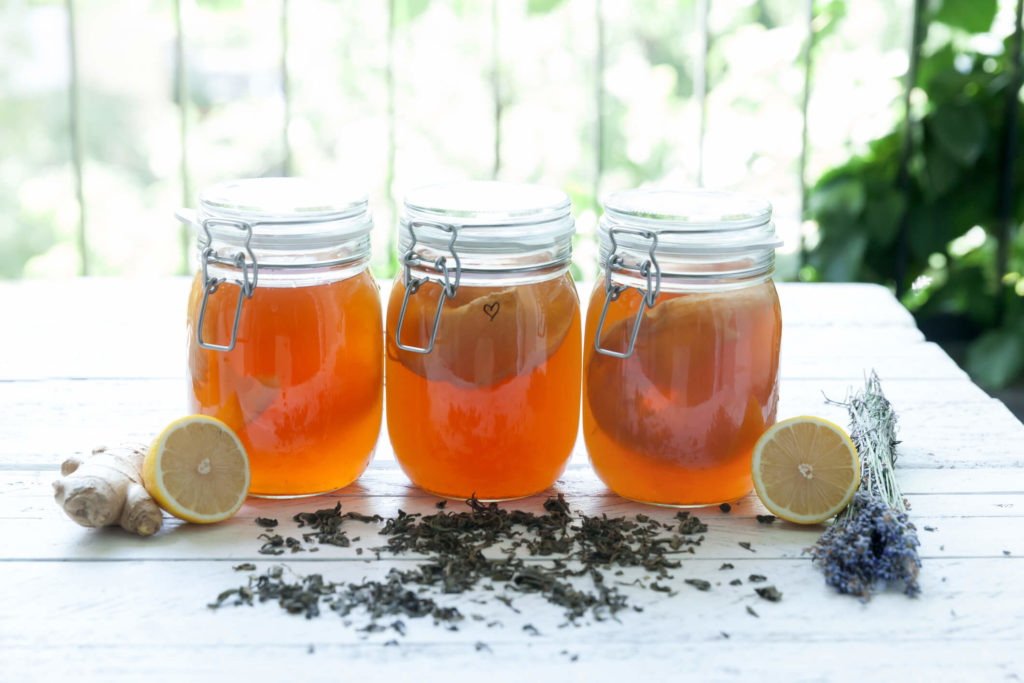Kombucha Tea: Facts vs. Fiction
Does drinking a cup of slightly sweet tea containing a live fermented mix of bacterial and yeast cultures sound appealing to you?
For many people who drink kombucha tea, it does by a long shot.
You can’t make a trip to the grocery store without seeing shelves full of bottled kombucha teas in various flavors, along with books and instructional kits on how to make it at home.
Many people see the word “fermented” — just like yogurt, pickles, sourdough bread, sauerkraut and tempeh — and assume they’re enjoying a delicious source of beneficial bacteria.
But is it really all that beneficial? Let’s find out with a review of how it’s made by true believers at home.
Making kombucha at home
Kombucha is created by brewing tea — black, green or oolong — removing the bags, then adding sugar while the brew is still hot, according to Food Source Information, a food production resource created by Colorado State University
Once the tea cools to room temperatures, a spongy culture called a SCOBY (Symbiotic Culture of Bacteria and Yeast) is added to the brew along with a starter liquid made from previously fermented kombucha to prevent contamination of the tea.
(You can buy a SCOBY and starter liquid at a local health food store or even online.)
The tea and SCOBY are placed in a glass, plastic or stainless steel container, covered with a clean towel and out of direct sunlight for up to 10 days to ferment.
After that, the kombucha tea may be ready for extra flavoring but only if the pH levels of the mix are between 2.5-4.2 (no higher or lower for safety’s sake).
The fictional benefits
If the process of making kombucha at home sounds time-consuming and tricky, it is.
Making kombucha tea at home can be risky if people aren’t careful to keep it safe and sanitary from contamination from bugs like aspergillus that can harm people with compromised immune systems.
Back to addressing the initial question — Is kombucha tea really good for your gut? — there is very little hard medical evidence beyond subjective accounts to support it.
In fact, a recent review by researchers at the University of Missouri School of Medicine appearing in the Annals of Epidemiology found exactly one study (from 2002) documenting any health benefits of kombucha in human subjects.
Moreover, this review found a number of potential risks to human health, including hepatitis after drinking kombucha tea for two years.
That’s not surprising given that kombucha is unpasteurized and contains an unpredictable mix of bacteria that can create problems for people with weaker immune systems.
Plus, if you’re watching your weight, many mass-produced brands of kombucha drinks contain a lot of sugar, as much as 7 teaspoons per serving!
The best and safest way to replenish the bacteria your body and gut needs to maintain good health is also the most predictable one.
Taking a probiotic, ideally with multiple strains of beneficial bacteria like EndoMune Advanced Probiotic, does the work to protect and boost your immune system and is far better at treating and protecting you from a wider range of health issues too.
Kombucha Tea: Facts vs. Fiction Read More »










